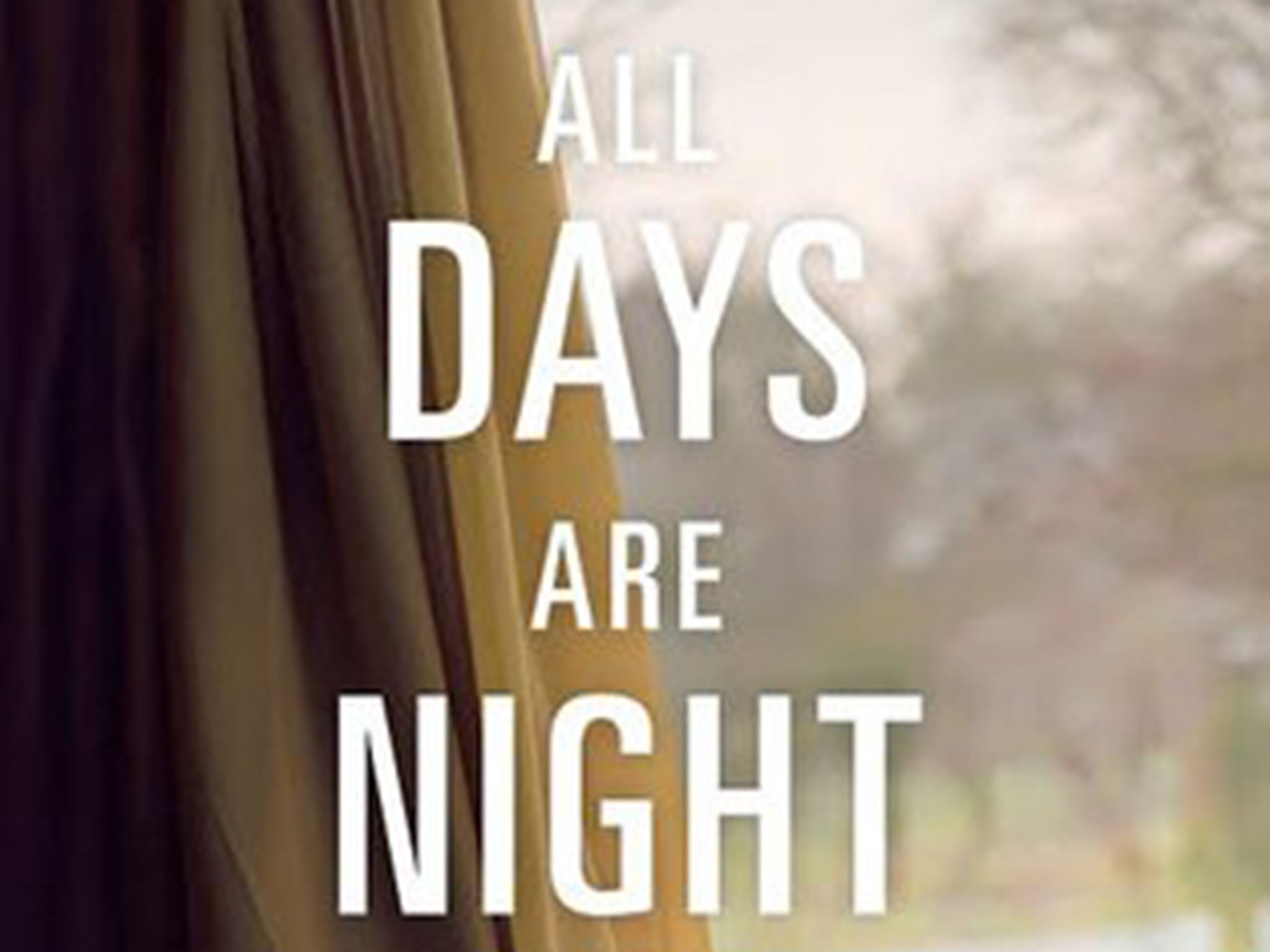All Days are Night - book review: A brilliant, bruising tale of shattered lives
You might think Peter Stamm is toying with his characters’ happiness, but it’s worse than that - he’s toying with the happiness of his readers

Peter Stamm’s novels are not where you go for happy endings, but what makes them such a gruelling proposition is that the Swiss-German writes happiness so well. Somehow the moments of joy and optimism he gifts his characters – or curses them with – leach from the page like old newsprint on to fingers, so the reader finds herself fervently wanting the best for these insubstantial wisps of creation. It’s a mistake you don’t make twice, so I open a Stamm book now with a pang of premature regret.
All Days Are Night begins with Gillian, a successful TV news presenter, in hospital after a car crash that has killed her husband, Matthias, and left her with terrible facial injuries: “It’s relatively straightforward to put an ear back, said the doctor, but a nose has a great many delicate blood vessels. We are going to have to build you a new one.”
As her sedation is reduced, Gillian surveys her predicament with a devastating clarity typical of this writer – and of his translator, the justly lauded Michael Hofmann. “Gillian had always known she was in danger, that she would sometime have to pay for everything. Now she had paid. When the doctor asked her what she could remember, she had slowly moved her head from side to side. She wasn’t shaking her head, she was looking for her memories on the white walls. But the things she saw there had nothing to do with her. Her job, her parents, Matthias – they were all from another life.
“Everything is still there, she said, only I am gone.”
Gillian’s acclimatisation to her new life – private and solitary where her old one was public and peopled – is interspersed with passages where she remembers a strange relationship she had pursued with an artist she once interviewed. This is Hubert, who has become famous for his photographs and paintings of anonymous naked women going about their household chores – women who were not models but willing chance encounters. Despite herself, Gillian had sought him out after the interview and asked to be photographed, and it was the discovery of these images that threw Matthias and Gillian into a terrible extended argument that seemed sure to end their relationship, if the crash hadn’t done it for them.
This, more or less, is the first half of this short, brilliant novel. It would be unfair to give any indication of what follows, except that it is unexpected, and infuriating, and chastening. You might think Stamm is toying with his characters’ happiness, but it’s worse than that. He’s toying with the happiness of his readers.
Order for £10.99 (free p&p) from the Independent Bookshop: 08430 600 030
Join our commenting forum
Join thought-provoking conversations, follow other Independent readers and see their replies
Comments